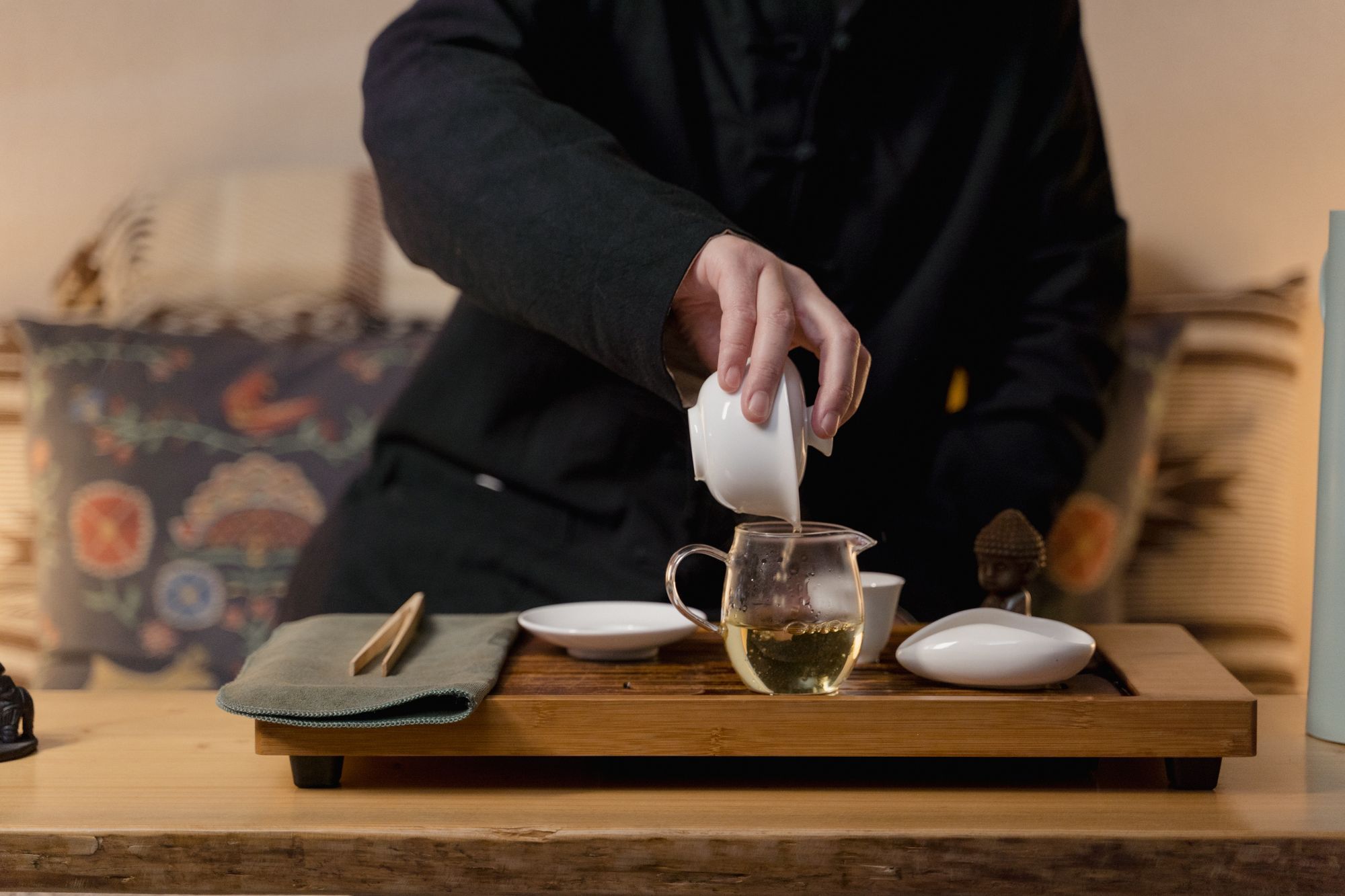Is Green Tea Caffeinated? The Surprising Truth About This Popular Beverage
Green tea is one of the most popular beverages in the world. It's consumed on a daily basis by millions of people who enjoy its refreshing taste and purported health benefits. But few people...

Green tea is one of the most popular beverages in the world. It's consumed on a daily basis by millions of people who enjoy its refreshing taste and purported health benefits. But few people know that green tea contains caffeine, making it a surprisingly controversial drink.
Page Contents
This article will explore what determines whether or not your cup of "green" has any caffeine at all, and why this seemingly innocuous beverage has caused so much debate.
When it comes to caffeine levels in green tea, there are a lot of misconceptions. Some people believe that all green tea is naturally caffeinated, while others think that because it's herbal, it must be caffeine-free. The truth is that the level of caffeine in green tea can vary significantly depending on the type of tea and how it's brewed.
Generally, green teas that have been oxidized (i.e., exposed to air) for a longer period of time contain more caffeine than those that are less oxidized. This is because the oxidation process creates a higher level of caffeine in the leaves. In contrast, white and green teas that have been steamed or pan-fried (i.e., not oxidized) generally contain less caffeine than their oxidized counterparts.
Brewing methods can also affect the level of caffeine in your cup of tea. For example, brewing a tea for a longer period of time will release more of its caffeine content into the water. Additionally, using hotter water will also result in a higher level of caffeine extraction.
So, how much caffeine is actually in green tea? The answer depends on a number of factors, but on average, one cup of green tea contains around 25 milligrams of caffeine. This is significantly less than the
What is Caffeine And Where Does it Come From?
Caffeine is a central nervous system stimulant that can be found in coffee, tea, chocolate and some soft drinks. Caffeine stimulates the brain stem and causes an increase of adrenaline. It also increases blood pressure, respiration rates and urination. Caffeine has been shown to improve athletic performance as well as reduce feelings of fatigue.
While most people think of caffeine as being harmful, it's actually relatively safe in moderation. The average adult can safely consume up to 400 milligrams of caffeine per day. However, pregnant women and people with certain medical conditions should limit their caffeine intake to 200 milligrams per day.
So, what does all this have to do with green tea? Well, as it turns out, the amount of caffeine in green tea can vary quite a bit depending on the type of tea and how it's brewed. Let's take a closer look.
How Much Caffeine is in Green Tea, And How Does That Compare to Other Drinks Like Coffee And Soda?
Green tea is often seen as a healthy alternative to caffeinated drinks like coffee and soda. This misconception may be due to the fact that green tea contains less caffeine than these other beverages, but it still has some. In fact, there are actually two sources of caffeine in green tea leaves: one comes from the fermentation process, and the other comes from the leaves themselves.
The caffeine content of coffee and tea varies depending on the type of bean or leaf used, as well as the brewing method. For example, brewed coffee typically contains between 80 and 120 milligrams of caffeine per cup, while black tea averages about 50 milligrams of caffeine per cup. Green tea, on the other hand, contains significantly less caffeine, with an average of 30-50 milligrams of caffeine per cup.
Health Benefits of Drinking Green Tea, Even With Its Caffeine Content
Green tea has been consumed for centuries and is one of the most popular beverages in the world. It is made from steaming a plant called Camellia sinensis, which contains a number of substances known as catechins. One such substance, caffeine, gives green tea its characteristic stimulating effect. However, there are other substances present that provide health benefits.
Epigallocatechin-3-gallate (EGCG) is the most abundant catechin in green tea and has been shown to have numerous health benefits. These include antioxidant, anti-inflammatory, and anticancer effects. A recent review of epidemiological studies concluded that drinking green tea was associated with a reduced risk of heart disease, stroke, and total mortality.
Even though green tea contains caffeine, it still provides a number of health benefits that make it a worthwhile beverage choice.
So, if you’re looking for a caffeine fix but want to avoid the jitters and energy crashes associated with coffee and soda, green tea may be a good option for you. Just remember to drink it in moderation, since too much caffeine can be harmful.
Are There Any Risks Associated With Consuming Too Much Caffeine, Especially When it Comes From Green Tea?
There are a lot of misconceptions about caffeine. It is the most popular stimulant in the world, with over 90% of adults consuming it on a daily basis and some people even becoming addicted to it. But what many people don't realize is that while caffeine can be addictive, it also has benefits such as providing energy and improving mental focus.
The main concern with caffeine is that it can lead to increased anxiety and restlessness. It can also cause headaches, nausea, and difficulty sleeping. These side effects are more likely when caffeine is consumed in large amounts or when someone is sensitive to it.
So, while caffeine can have some negative side effects, these are usually only seen when someone consumes too much. For most people, moderate amounts of caffeine from green tea are safe and provide a number of health benefits.
How You Can Enjoy The Health Benefits of Green Tea While Minimizing Your Risk of Consuming Too Much Caffeine
If you love the taste and health benefits of green tea, but are worried about consuming too much caffeine, there are a few things you can do to minimize your risk.
First, try choosing decaffeinated green tea whenever possible. While the decaffeination process does remove some of the health-promoting polyphenols from the tea, it also significantly reduces the caffeine content.
You can also brew your own green tea at home using loose-leaf tea and a coffee filter. This method allows you to control how long the leaves steep, which in turn affects the caffeine content.
Second, make sure to drink plenty of water along with your tea to help flush the caffeine out of your system.
Third, avoid drinking green tea late in the day or close to bedtime, as caffeine can interfere with sleep.
Finally, if you find that you are still experiencing adverse effects from consuming too much caffeine, consider reducing your intake or switching to a different type of tea altogether.

